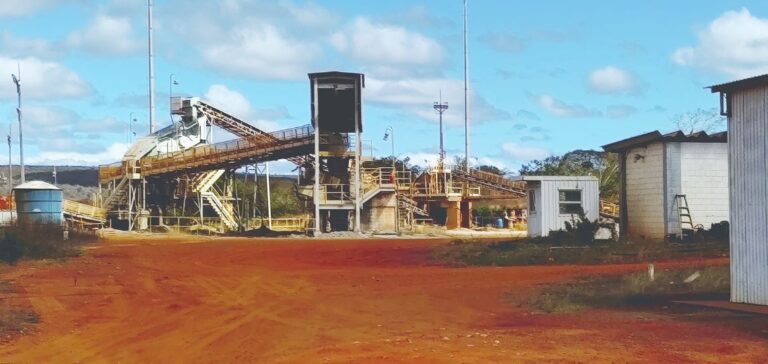Brazil, via Indústrias Nucleares do Brasil (INB), is relaunching uranium exploration after four decades of inactivity, mainly because of the economic opportunities offered by a booming global market.
This strategic decision is aimed at strengthening the country’s position as a key player in the nuclear sector, where uranium prices have tripled in recent years.
INB is setting up a partnership program with mining companies to further exploit the country’s under-exploited deposits.
Although Brazil has substantial uranium reserves, they have been largely neglected since the 1980s.
Today, with global demand rising sharply, the reactivation of these resources is part of a profit-driven rationale.
The “Partnership for the Exploration and Exploitation of Uranium” program mainly targets the Pocos de Caldas, Lagoa Real/Caetité and Santa Quitéria deposits, with priority given to profitability.
Monetizing natural resources
The Lagoa Real/Caetité mine, currently the only one in production, has a capacity of 340 tonnes of uranium per year.
However, INB intends to maximize the exploitation of adjacent deposits, such as Engenho, to rapidly increase production.
The Santa Quitéria consortium, developed in partnership with Galvani, aims to produce 2,300 tonnes of uranium concentrate annually, capitalizing on the deposit’s commercial potential.
This relaunch of exploration is part of a clear economic strategy: to transform Brazil into a major supplier to the global uranium market. Potential profits are the main driving force behind this initiative, as Brazilian authorities seek to fully monetize the country’s natural resources.
International partnerships to maximize profits
Recent contracts with Rosatom and Westinghouse reinforce this strategy.
In December 2022, an agreement was signed with Rosatom for the supply of 330 tonnes of natural uranium in the form of UF6 for the Angra reactors.
In addition, contracts with Westinghouse signed in May 2023 are designed to guarantee the supply of advanced fuel assemblies required for Brazilian nuclear reactors.
These agreements illustrate Brazil’s determination to take advantage of global market dynamics to maximize revenues in the nuclear sector.
The resumption of uranium exploration is not only a response to domestic energy demand, but above all an economic strategy designed to place Brazil among the world leaders in the uranium market.





















